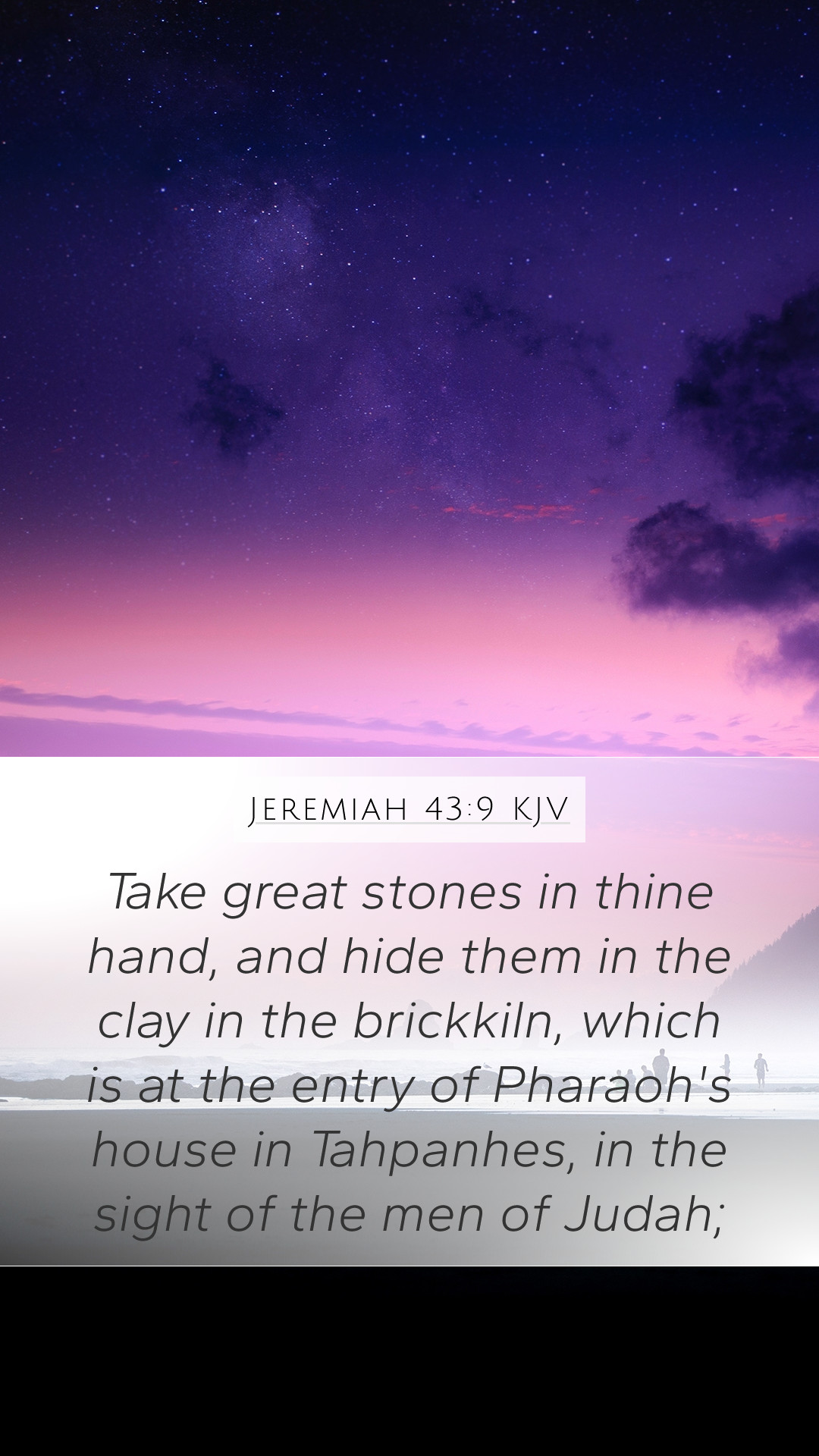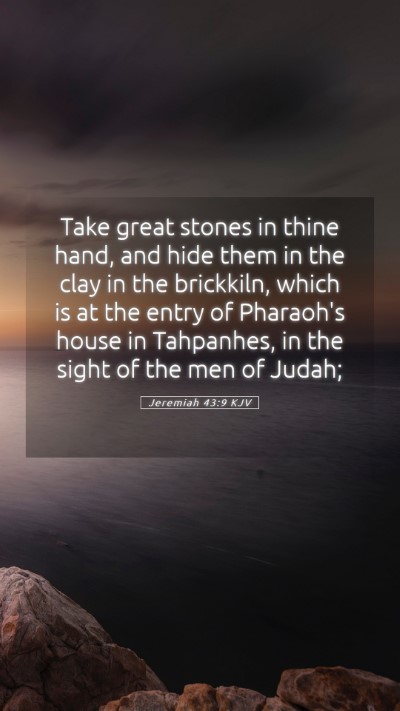Understanding Jeremiah 43:9
Jeremiah 43:9 states: "Take in your hand large stones, and hide them in the mortar in the advance of Pharaoh's house in Tahpanhes, in the sight of the men of Judah." This verse forms part of a significant narrative where the prophet Jeremiah receives instructions from God regarding the fate of Judah and its people.
Context of Jeremiah 43:9
This verse is part of a series where God commands Jeremiah to illustrate through actions the impending judgment upon the people of Judah and their choice to flee to Egypt. The verse emphasizes the prophetic act as a means of conveying deeper spiritual truths about obedience and the consequences of disobedience.
Key Themes and Insights
- Symbolic Actions: Jeremiah is instructed to perform symbolic actions that convey the seriousness of God's message.
- Judgment and Restoration: The act of hiding stones serves as a visible sign of God's judgment on Judah for their rebellion.
- Contrast of Trust: This verse illustrates the contrast between trusting in God versus trusting in earthly powers.
Biblical Exegesis of Jeremiah 43:9
Matthew Henry in his commentary emphasizes the importance of Jeremiah's action as a divine demonstration. He notes that the stones represent both the permanence of God's message and the seriousness with which He views the choices made by His people.
Albert Barnes discusses the historical context of the verse, highlighting that Tahpanhes (or Tahpanhes) was located in Egypt, a place Judah sought refuge. He explains that hiding stones in mortar symbolizes the foundation of disbelief against God's intended path.
Adam Clarke provides interpretation regarding the visibility of this act; the stones being placed in plain sight serves as a public testimony to the people of Judah. They were meant to draw attention to their need for repentance and reliance on God.
Historical Significance
The era in which this verse occurs is crucial as it reflects a time of unrest for God's people. The admonition against fleeing to Egypt portrays a moment of spiritual failure among the Jews, who sought safety in foreign lands instead of in the sovereignty of God.
Related Biblical Cross References
- Jeremiah 42:19-20: Details the people's decision to go to Egypt and God’s warning against it.
- Isaiah 30:1-3: Addresses the futility of relying on Egypt for assistance.
- Exodus 14:13-14: Illustrates the deliverance of Israel from the Egyptian bondage and reliance on God’s protection.
Applying Jeremiah 43:9 to Daily Life
In reflecting on Jeremiah 43:9, believers today can consider their own reliance on earthly solutions versus divine guidance. The act of placing stones serves as a reminder for individuals to engage in reflective practices about where they seek protection and security.
Conclusion
Jeremiah 43:9 is not only a historical account but a profound lesson on the importance of heeding God's voice amid life's decisions. As believers study this verse, it encourages a deeper understanding of God's sovereignty and the continuous need for obedience and faith in Him.
For those engaged in Bible study groups or utilizing Bible study tools, exploring the rich layers of such verses can lead to more profound Bible study insights and a greater understanding of Scripture as a whole. Whether through online Bible study or personal reflection, the message continues to resonate through the ages.


